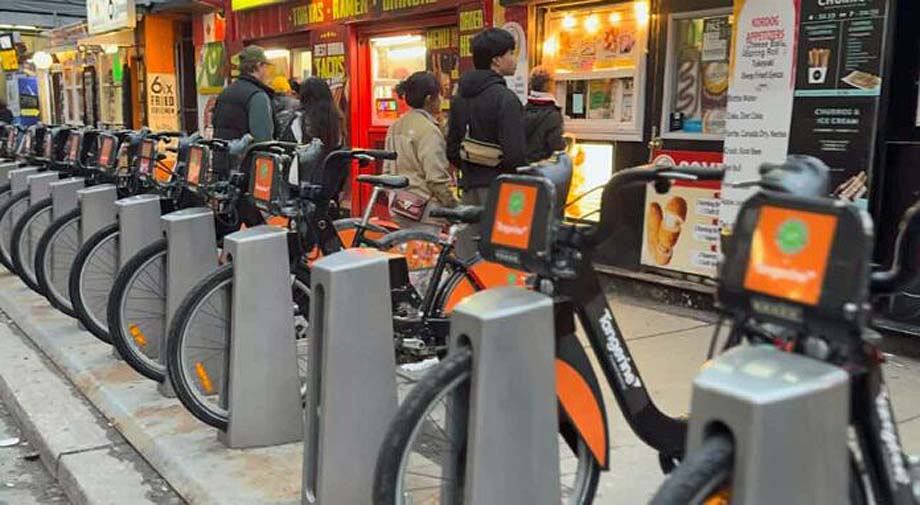
Toronto Ontario - Nearly a year after a fire aboard a Toronto Transit Commission (TTC) train last New Year's Eve, the TTC has introduced a controversial winter ban on e-bikes and e-scooters.
Starting Tuesday and lasting until 15 Apr 2025 the ban is aimed at preventing fires caused by potentially faulty lithium-ion batteries, particularly those damaged by snow and salt.
While the move addresses safety concerns, critics argue it unfairly targets gig workers, many of whom rely on public transit to commute and deliver food across Toronto's busy downtown.
In Toronto many of the DoorDash and Skip the Dishes workers use e-bikes, they are often far faster than cars.
Safety Concerns and the Risk of Fires
The TTC's decision follows concerns about the danger posed by lithium-ion batteries on e-bikes.
These batteries, when damaged or defective, can ignite in fires that are difficult to control, particularly in confined spaces like subway tunnels.
TTC Chair Jamaal Myers acknowledged the severity of the risk, saying, "A similar blaze during rush hour in a tunnel could be catastrophic."
The TTC pointed to incidents like the New Year's Eve train fire and other international examples to justify the ban.
Impact on Gig Workers
The ban has sparked outrage among gig workers, many of whom are recent immigrants or racialized individuals earning precarious wages.
These workers depend on their e-bikes to make deliveries and often use the TTC to travel from suburban homes to downtown delivery zones.
Brice Sopher, vice-president of Gig Workers United, condemned the ban, stating, "This decision cuts off thousands of workers from their livelihood without warning, during one of the busiest seasons for deliveries."
Sopher added that governments should focus on ensuring safer e-bike batteries rather than penalizing workers, "Why do we have batteries for sale that explode or catch fire? The option should not exist."
Exploring Alternative Solutions
The TTC plans to explore solutions to mitigate the impact of the ban.
Myers suggested initiatives such as:
- Collaborating with food delivery platforms like Uber Eats to provide secure bike parking downtown;
- Creating battery-storage facilities at TTC stations where riders could leave their batteries before boarding trains.
However, critics like City Councillor Josh Matlow argue the ban is impractical and difficult to enforce, "The TTC doesn't have the resources to go car-to-car inspecting batteries. This will only create frustration for those who need to work."
Regulatory Gaps in Battery Safety
The ban has also highlighted the lack of stringent regulations for lithium-ion batteries in Canada.
While agencies like Health Canada and Transport Canada are studying the risks, concrete action remains limited.
In May 2023, Health Canada issued a warning about the dangers of damaged or misused e-bike batteries, recommending only certified batteries be used.
Yet, many substandard products continue to enter the market, posing risks to riders and the public.
Global and Local Responses
While few transit systems worldwide have banned e-bikes outright, other cities are addressing battery safety in innovative ways.
New York City, for instance, has introduced a program allowing delivery riders to exchange faulty e-bike batteries for safer models.
In contrast, Toronto's blanket ban could disproportionately impact vulnerable workers without providing immediate alternatives, sparking debates about fairness and safety.
James Murray.
(likely no image with original article)
(usually because it's been seen before)
provisions in Section 29 of the
Canadian Copyright Modernization Act.
